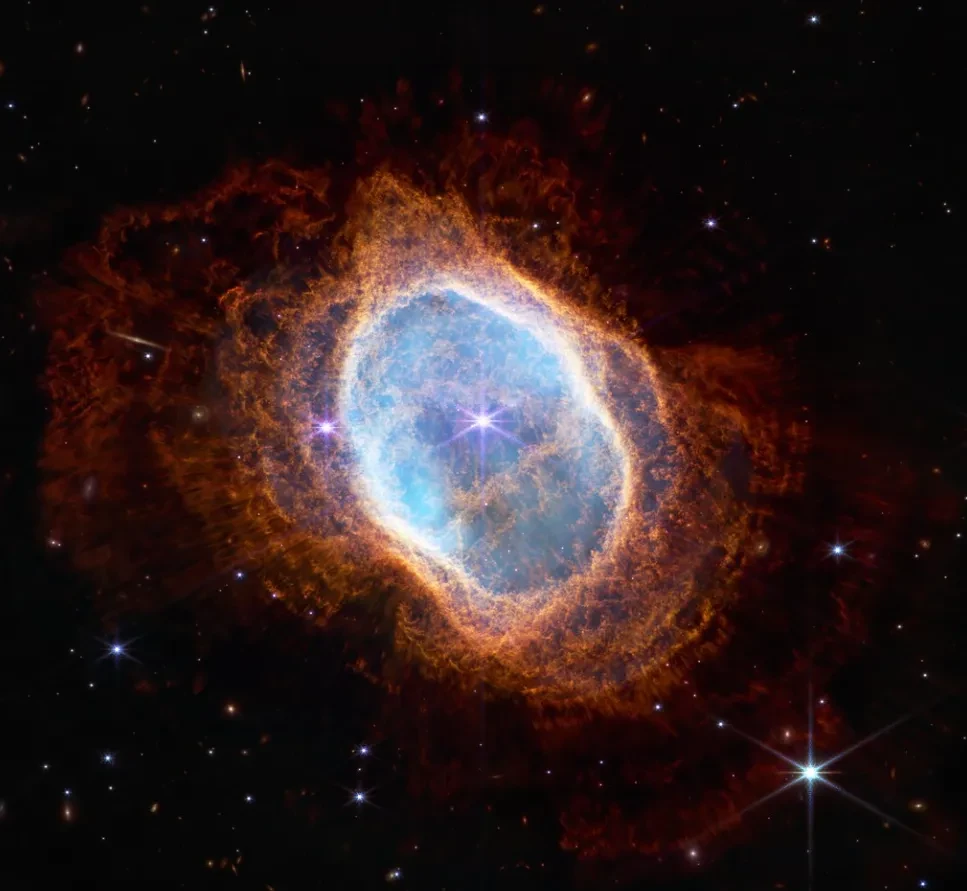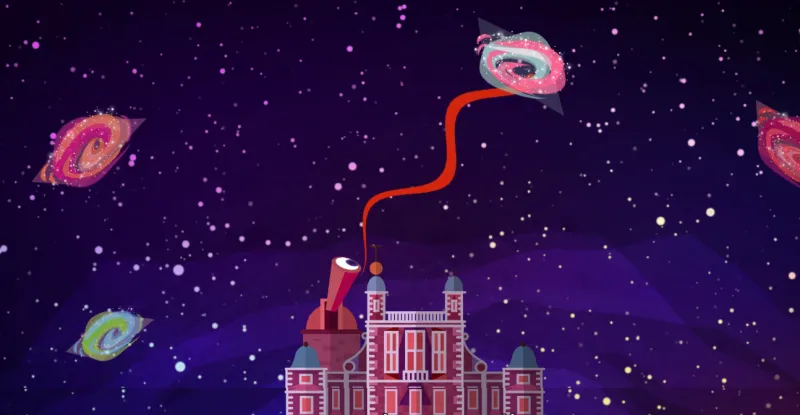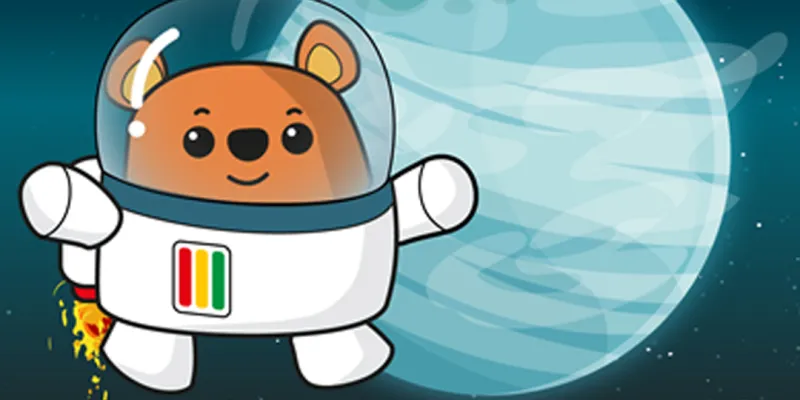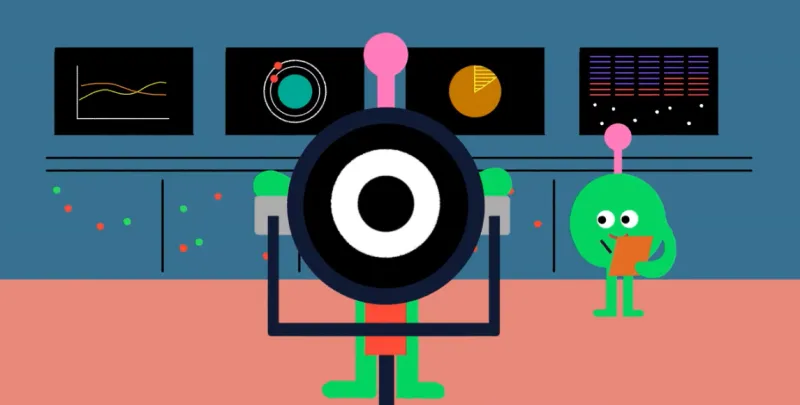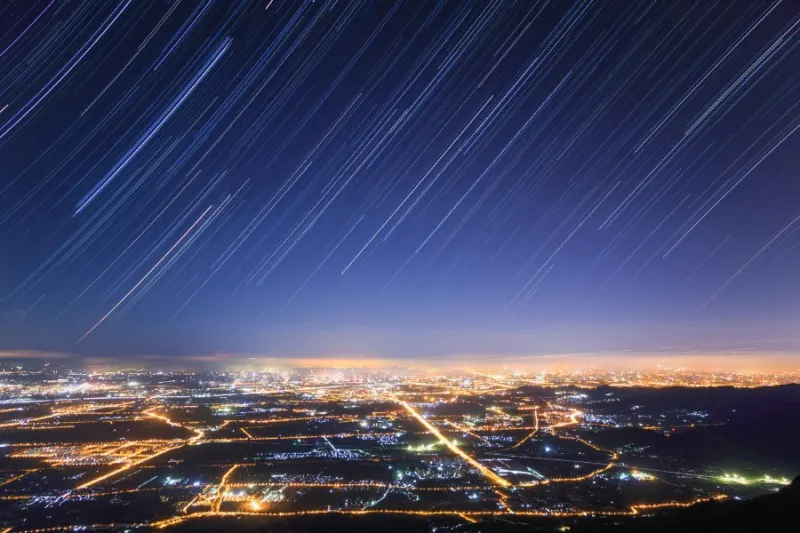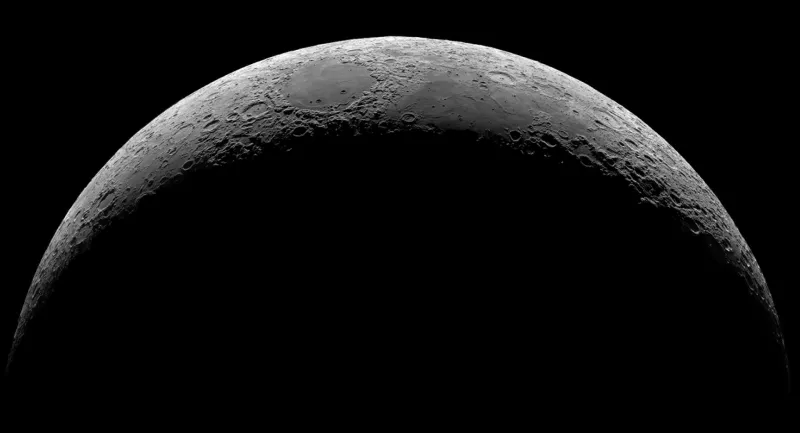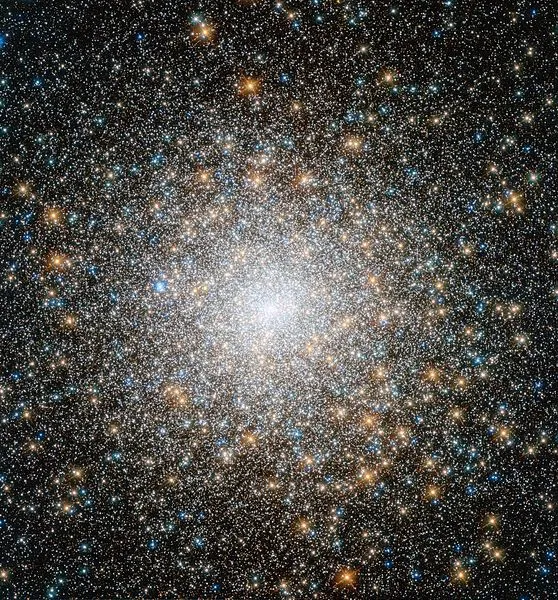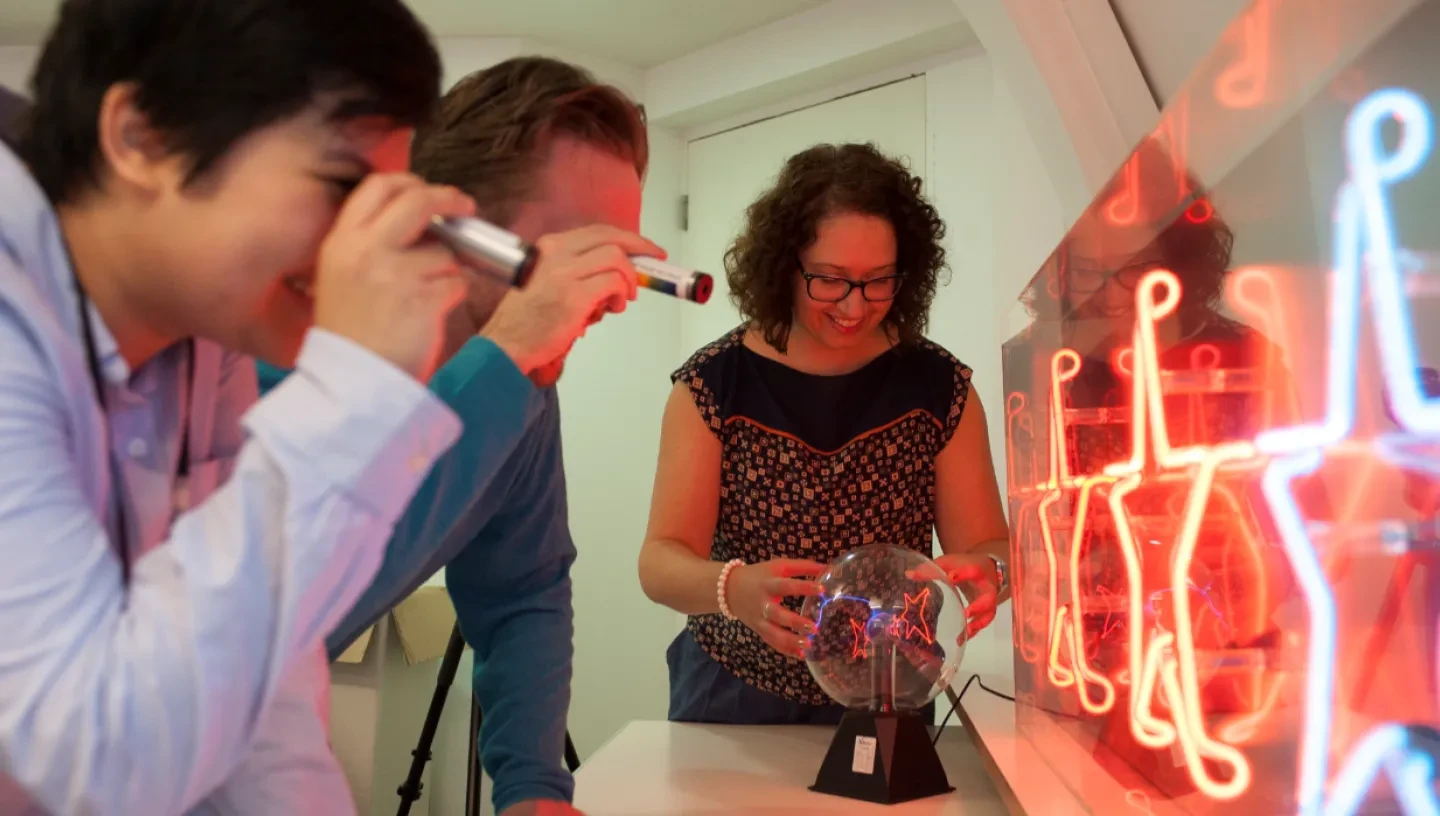
The Royal Observatory Greenwich’s Astronomy team has temporarily moved to the National Maritime Museum whilst we undergo an exciting regeneration project!
We're running brand new digital sessions for Key Stages 2 and up from January 2026, as well as in-person Early Years and Key Stage 1 programming. In person programming for KS2 and up is available to book now, and will be running in the Summer term.
To keep up to date on announcements and news, sign up to our Schools Newsletter.
If you can't visit us at the Royal Observatory Greenwich for an onsite session, don't worry! We're excited to offer a number of online workshops for schools and students throughout the academic year.
Our digital sessions are delivered by Royal Observatory Greenwich astronomers and are run on Tuesdays on either Zoom or Teams, whichever works best for you.
In the Spring term, we're running every Tuesday and the sessions available are at: 10:30, 11:30 and 12:45.
In the Summer term, we're running one Tuesday a month (see dates below) and the sessions available are at: 10:30, 11:30, 12:45 and 13:45.
Our programme explained
We have two types of workshops:
Solo Workshop (select Tuesdays, 12:45 - 13:30 and 13:45 - 14:30)
In this highly interactive workshop, your class will be the only one in the session with our Astronomer. Each session ends with a segment for Q&A so there are plenty of opportunities to ask questions and discover new things. The workshops use a combination of sound, film, polls and activities to explain different scientific concepts.
These sessions can be run on Zoom or Teams, whichever works better in your classroom. Cameras and microphones can be switched on for interactivity.
Materials for the workshop and joining instructions will be sent to the lead teacher up to a week before the session.
You can select from the following options:
In the Spring term, these run every Tuesday from 12:45 - 13:30.
In the Summer term, these run one Tuesday a month (see dates below) from 12:45 - 13:30 or from 13:45 - 14:30.
Summer term Tuesdays: 21st April, 19th May, 16th June, 7th July.
Cost: £70 per class of up to 30 children
Workshop Webinar - KS2 only (Tuesdays, 10:30-11:15 or 11:30-12:45)
In this discounted workshop, multiple classes can join our astronomer for a workshop in a webinar style, and use a combination of sound, film, and polls to explore different scientific concepts. The session will be less interactive than the solo version, but students will still have the opportunity to respond to astronomer questions via polls and teachers will have the opportunity to send a question in advance from their class.
These sessions will run on Zoom, with cameras and microphones switched off for the duration of the workshop. Currently, we can only run Workshop Webinars for KS2 groups.
Materials for the workshop, joining instructions, and a link to submit questions in advance will be sent to the lead teacher up to a week before the session.
In the Spring term, these run every Tuesday.
In the Summer term, these run one Tuesday a month (see dates below).
Summer term Tuesdays: 21st April, 19th May, 16th June, 7th July.
Cost: £15 per class of up to 30 children
Workshop webinar options
KS2: Sun, Earth and Moon (Tuesdays, 10:30 - 11:15)
In this interactive digital session, students will:
- Investigate the Sun, Earth and Moon System, including the similarities, differences and relative size and shape of these objects
- Understand how the motion of the Sun, Earth and Moon relates to the concept of time (day, month, year)
- Discover what astronomical phenomena occur as the Sun, Earth and Moon move in relation to each other
The session finishes up with a question and answer segment so students have the opportunity to ask any questions they have. Post-session activities will also be supplied for your students to try afterwards and test what they have learned.
Please note that this workshop is only available as a Workshop Webinar.
In the Spring term, these run on Tuesdays.
In the Summer term, these run one Tuesday a month (see dates below).
Summer term Tuesdays: 21st April, 19th May, 16th June, 7th July.
KS2: Exploring Our Solar System (Select Tuesdays, 11:30 - 12:15)
What is inside our Solar System? In this interactive digital session, students will:
- Learn about the eight planets of our Solar System, how big they are and what they’re made of.
- Explore how different objects in the Solar System move in relation to each other
- Discover the different types of space rocks found in our Solar System, including moons, dwarf planets and asteroids.
The session finishes up with a question and answer segment so students have the opportunity to ask any questions they have. Post-session activities will also be supplied for your students to try afterwards and test what they have learned.
In the Spring term, these run on alternate Tuesdays.
In the Summer term, this will run on the 21st April and 16th June.
KS2: Latitude, Longitude and Time Zones (Select Tuesdays, 11:30 - 12:15)
How can we use the Sun to tell the time? And why isn’t it the same time all across the world? In this interactive digital session, students will:
- Learn about how the Earth’s rotation explains day and night and the movement of the Sun across the sky.
- Identify the position and significance of key lines of longitude and latitude on the globe.
- Explore different time zones and how time varies around the world.
The session finishes up with a question and answer segment so students have the opportunity to ask any questions they have. Post-session activities will also be supplied for your students to try afterwards and test what they have learned.
In the Spring term, these run on alternate Tuesdays.
In the Summer term, this will run on the 19th May and 7th July.
Solo workshop options
KS2: Exploring Our Solar System (Tuesdays, 12:45 - 13:30 or 13:45 - 14:30)
What is inside our Solar System? In this interactive digital session, students will:
- Learn about the eight planets of our Solar System, how big they are and what they’re made of.
- Explore how different objects in the Solar System move in relation to each other
- Discover the different types of space rocks found in our Solar System, including moons, dwarf planets and asteroids.
The session finishes up with a question and answer segment so students have the opportunity to ask any questions they have. Post-session activities will also be supplied for your students to try afterwards and test what they have learned.
In the Spring term, these run every Tuesday and the 12:45 session is available.
In the Summer term, these run one Tuesday a month (see dates below) and sessions are available at 12:45 and at 13:45.
Summer term Tuesdays: 21st April, 19th May, 16th June, 7th July.
KS2: Space Exploration Adventure (Tuesdays, 12:45 - 13:30 or 13:45 - 14:30)
In this interactive digital session, students will:
- Embark on a space mission where students become astronauts tasked with repairing their damaged spaceship!
- Discover important events in the history of space exploration from the first satellite, missions to the Moon, telescopes in space and more.
- Consider the future of space exploration .
The session finishes up with a question and answer segment so students have the opportunity to ask any questions they have. Post-session activities will also be supplied for your students to try afterwards and test what they have learned.
In the Spring term, these run every Tuesday and the 12:45 session is available.
In the Summer term, these run one Tuesday a month (see dates below) and sessions are available at 12:45 and at 13:45.
Summer term Tuesdays: 21st April, 19th May, 16th June, 7th July.
KS2: Latitude, Longitude and Time Zones (Tuesdays, 12:45 - 13:30 or 13:45 - 14:30)
How can we use the Sun to tell the time? And why isn’t it the same time all across the world? In this interactive digital session, students will:
- Learn about how the Earth’s rotation explains day and night and the movement of the Sun across the sky.
- Identify the position and significance of key lines of longitude and latitude on the globe.
- Explore different time zones and how time varies around the world.
The session finishes up with a question and answer segment so students have the opportunity to ask any questions they have. Post-session activities will also be supplied for your students to try afterwards and test what they have learned.
In the Spring term, these run every Tuesday and the 12:45 session is available.
In the Summer term, these run one Tuesday a month (see dates below) and sessions are available at 12:45 and at 13:45.
Summer term Tuesdays: 21st April, 19th May, 16th June, 7th July.
KS3/4/5: What’s out There? Exploring Careers in the Space Sector (Tuesdays, 12:45 - 13:30 or 13:45 - 14:30)
In this interactive digital session, students will:
- Discover the history of the Royal Observatory Greenwich, and what the first Astronomers Royal were hired to do
- Explore the wide range of different careers in the space sector today and how these impact the world around us
The session finishes up with a question-and-answer segment so students can ask any questions they have.
In the Spring term, these run every Tuesday and the 12:45 session is available.
In the Summer term, these run one Tuesday a month (see dates below) and sessions are available at 12:45 and at 13:45.
Summer term Tuesdays: 21st April, 19th May, 16th June, 7th July.
KS3: Forces in Space (Tuesdays, 12:45 - 13:30 or 13:45 - 14:30)
What forces are involved in space travel? And how does gravity change in different space environments?
In this interactive digital session, students will:
- Learn the difference between mass and weight and look at what determines the strength of the force of gravity.
- Explore how gravity affects space exploration on the International Space Station, the Moon and Mars.
- Discuss some recent and upcoming Martian missions, and consider what’s next in space exploration.
The session finishes up with a question and answer segment so students have the opportunity to ask any questions they have. Post-session activities will also be supplied for your students to try afterwards and test what they have learned.
In the Spring term, these run every Tuesday and the 12:45 session is available.
In the Summer term, these run one Tuesday a month (see dates below) and sessions are available at 12:45 and at 13:45.
Summer term Tuesdays: 21st April, 19th May, 16th June, 7th July.
KS4: Life Cycle of Stars (Tuesdays, 12:45 - 13:30 or 13:45 - 14:30)
Stars are born, live out their lives and die all throughout the universe, but what determines the path they take?
In this interactive digital workshop, students will:
- Learn about the fusion reactions that occur inside stars and how this leads to the equilibrium between expansion and gravitational collapse.
- Learn about the different life-cycles of sun-like stars and giant stars.
- Explore how data about stars is collected in space.
The session finishes up with a question-and-answer segment so students can ask any questions they have. Post-session activities will also be supplied for your students to try afterwards and test what they have learned.
In the Spring term, these run every Tuesday and the 12:45 session is available.
In the Summer term, these run one Tuesday a month (see dates below) and sessions are available at 12:45 and at 13:45.
Summer term Tuesdays: 21st April, 19th May, 16th June, 7th July.
KS5: Cosmic Distance Ladder (Tuesdays, 12:45 - 13:30 or 13:45 - 14:30)
How do we measure distances in space?
In this interactive digital session, students will:
- Learn about the methods used within the cosmic distance ladder.
- Explore the doppler effect on Earth and its application in space.
- Discuss the expansion of the Universe, along with what might happen next.
The session finishes up with a question-and-answer segment so students can ask any questions they have. Post-session activities will also be supplied for your students to try afterwards and test what they have learned.
In the Spring term, these run every Tuesday and the 12:45 session is available.
In the Summer term, these run one Tuesday a month (see dates below) and sessions are available at 12:45 and at 13:45.
Summer term Tuesdays: 21st April, 19th May, 16th June, 7th July.
Decided on your session?
Great!
All our digital workshops will run on Tuesdays during term times.
In the Spring term, we're running every Tuesday and the sessions available are at: 10:30, 11:30 and 12:45.
In the Summer term, we're running one Tuesday a month (see dates below) and the sessions available are at: 10:30, 11:30, 12:45 and 13:45.
Once you have selected a date that would work best for you, click this link to start your booking:
Frequently asked questions
What is a Digital Outreach Session?
In our workshops, one of our astronomers will take a look at some of the biggest topics in space science and astronomy. These curriculum-linked sessions include a number of interactive elements such as video clips and demonstrations to help explain some of the more challenging scientific concepts.
How much does a Digital Outreach session cost?
Solo Workshops are charged at £70 for a group of up to 30 students and you will be the only class in the session.
Workshop Webinars cost £15 for a group of up to 30 students and will be joined by classes from other schools.
Who develops and runs the sessions?
The sessions are run by our real astronomers so there is always an expert available to ask any questions. Our content is developed by the astronomy education team in collaboration with our teacher forum. All sessions are tested and evaluated with the teacher forum and also with school groups to ensure that the content developed is exactly what teachers are looking for and what students will thoroughly enjoy!
Are there activities that can follow on from the digital session?
Yes - LOTS. Royal Observatory Astronomers have been developing educational resources to support learning in the classroom from early years through to post 16. From animated videos, classroom activities and even movement podcasts, each resource has been designed around the national curriculum.
All astronomy and science resources | Royal Museums Greenwich
On our website, you will also find information about our Teacher Forum and free teacher training sessions (both onsite and online), a growing collection of podcasts, blogs, and curriculum-linked classroom resources, as well as animated videos.
Keep in touch
We have a monthly e-newsletter so you can easily keep up to date with our schools programme, new resources and other student/teacher events.
Royal Observatory science lesson ideas and resources
We have a huge selection of resources to choose from that can be used before or after your session.
